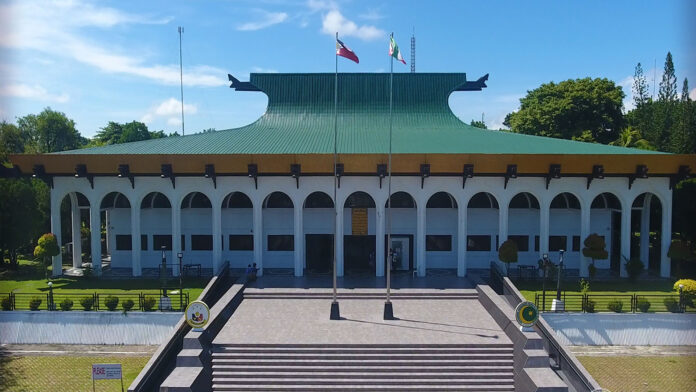The Marcos administration is fully committed to the Bangsamoro peace process, the Office of the Presidential Adviser on Peace, Reconciliation and Unity (OPAPRU) reiterated Saturday.
“Unang-unang nagpapasalamat tayo sa ating Pangulong Ferdinand ‘Bongbong’ Marcos Jr. (First of all I wanted to thank President Ferdinand Marcos Jr.) for making the Bangsamoro peace process as the priority peace legacy agenda of his administration. I equivocally say that he will not waiver in his commitment to implement the peace agreement, the Comprehensive Agreement on the Bangsamoro (CAB), which was started by his father before under the Tripoli agreement,” OPAPRU Director Wendell Orbeso said during the Saturday News Forum in Quezon City.
“Ang pangako ni Presidente ay tatapusin niya ang mga commitments sa Bangsamoro Peace Process under his administration (The president’s promise is to fulfill all the commitments in the Bangsamoro Peace Process under his administration).”
After the approval of the Bangsamoro Electoral Code in March, BARMM will elect its officials in 2025.
Orbeso expressed optimism that an exit agreement would be signed by 2025 once all commitments are fulfilled.
‘On track’
Meanwhile, the decommissioning of about 40,000 Moro Islamic Liberation Front (MILF) combatants by 2025 is still on track.
Decommissioning is a key dimension of the Annex on Normalization under the CAB signed between the Philippine government and the MILF in 2014.
Orbeso said the fourth phase is targeted to start by the last quarter of 2023.
“Sa decommissioning on track tayo. Kritikal ‘yong tanong kung masisimulan ba ang phase 4 this year, iyon ang target natin sa OPAPRU. Ang target natin ay mga last quarter of this year (We are on track with the decommissioning. The question if we will start phase 4 this year is critical. Our target is the last quarter of this year),” he said in a separate interview.
The third phase will conclude on Aug. 10 with the decommissioning of 1,301 fighters, raising the overall number of decommissioned combatants to 26,145 since 2021.
“Itong nangyayaring resumption ng decommissioning ay nagpapakita ng sincerity, yung firm commitment ng national government, ng ating mahal ng Pangulong Bongbong Marcos, at (This resumption of decommissioning shows the sincerity and firm commitment of the government, of President Bongbong Marcos and) yung jointness ng trust and confidence between the government of the Philippines and Moro Islamic Liberation Front to push forward the implementation of the Bangsamoro Peace Process,” Orbeso said.
On top of decommissioning, the normalization process includes the disbandment of private armed groups, amnesty, policing, socioeconomic support for former combatants, transitional justice and reconciliation, redeployment of the Armed Forces of the Philippines, and addressing issues of unexploded ordnance and landmines.
Orbeso said the government continues to address challenges facing the peace process, including the need for socioeconomic support, to keep up with the pace of the decommissioning.
“Ang isang challenge natin ay itong socioeconomic support ay mag-catch up sa progress ng decommissioning kasi mabilis masyado si decommissioning (One of the challenges here is that the socioeconomic support needs to catch up with the progress of decommissioning because it is fast),” he said, referring to the various initiatives to help former combatants reintegrate into society, such as skills development and livelihood and education support.
Through the Department of Social Welfare and Development, the government provides each decommissioned fighter with PHP100,000 in cash assistance. (PNA)
Photo credit: Facebook/thebangsamorogovt


